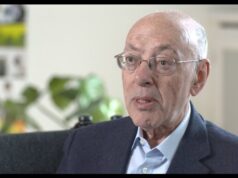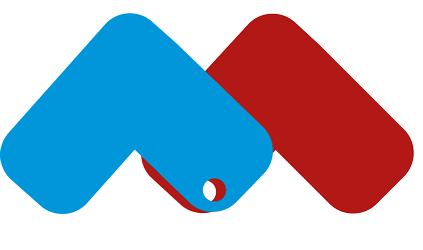Authored by Andre van Heerden
How shall we orient ourselves in the social and political world? In what way can we best begin our inquiry? I believe that, in relation to politics, the first question to ask is: ‘What is it that holds authority for us?’ ‘For us’ does not mean here for Peter or Paul, or for political science students, or for this or that social class or age group, but for all of us as citizens of a contemporary democracy.
–Pierre Manent in ‘A World Beyond Politics?’
It was Aristotle who told us that to be human means to be a rational animal, that is, an animal with intellect and free will, and therefore, the capacity to transcend animal nature and control destructive animal appetites. And, as Einstein made clear, the most  incomprehensible thing about reality is the fact that it is comprehensible; there is a remarkable affinity between the rationally ordered universe and the rational minds of human beings.
incomprehensible thing about reality is the fact that it is comprehensible; there is a remarkable affinity between the rationally ordered universe and the rational minds of human beings.
We want to know the truth about ourselves, other people, and the world around us, and that motivates us to make choices about how we conduct ourselves.
This ability to understand reality comes with a heavy responsibility, because the truth about human beings and the world includes knowing what is good for them and what is bad for them, and concepts such as justice and mercy, morality and conscience, freedom and authority – in all forms of community – arise naturally to challenge the thinking animal. And our understanding of leadership is largely shaped by how we think about those concepts.
Indeed, the global leadership crisis is exacerbated by the widespread failure to comprehend the meaning of authority, the power of truth, and the personal responsibility we all carry to ensure that our consciences are properly informed.
In his quest for metaphysical certainty, for an absolutely irrefutable truth from which he could build a rigorously rational philosophy, Rene Descartes seized upon the reality of his own intellect. “I think; therefore, I am.” My thinking proves my existence. Of course, as his own philosophical errors were to demonstrate, our search for truth can easily, and often does, go wrong, but he did provide many important insights, and he emphasized the responsibility of the individual to seek truth in the quest for existential fulfillment.
We undermine our own humanity when we fail to think for ourselves or when we think without precision, about our desires, motivations, beliefs, and judgments in relation to other people in all walks of life. That is the sense in which we are all called to be leaders: to channel Descartes’ famous words: “I think; therefore, I am, or should be, a leader”.
It seems clear enough that most leadership gurus, not to mention almost everyone else, agree as to what it takes for a person to be an effective leader. Sadly, very few seem to have any idea as to why so few people put into practice what everyone knows. I believe that it very largely comes down to a question of authority.
Leadership and Authority
Now the word authority, with its obvious connotation of power, evokes strong though mixed emotions – fear, suspicion, and distaste, yet also security, ambition, and even obsession. The word comes from the Latin word auctoritas, which derives from the Latin root auctor, which means originator or promoter. Obviously, our word author has the same root, and an author plainly has the right to choose the way things go in his or her book.
____
READ ALSO: Understanding Power and Rationality
_____
Merriam Webster defines authority as the power to give orders or make decisions, or the power or right to direct or control someone or something, but in typically modern fashion, fails to make the essential distinction between ‘power’ and ‘right’. Whether recognized authority derives from inheritance, custom, contract, appointment, or election, power is still necessary, given the perversities of human nature, to uphold that authority, to give it substance. A parent, a teacher, or a police officer, has authority i.e. the right to exercise direction and control, but in certain circumstances may lack the power. By the same token, none of them have the authority to use their power unjustly. G. K. Chesterton put it this way:
“Tyranny is the opposite of authority. For authority simply means right; and nothing is authoritative except what somebody has a right to do, and therefore is right in doing. It often happens in this imperfect world that he has the right to do it and not the power to do it. But he cannot have a shred of authority if he merely has the power to do it and not the right to do it.”
In the western world today, with skepticism over our allegedly representative institutions proliferating, we see political authority increasingly questioned, but also imposed and accepted, either fearfully or indifferently. In the business world, we witness a similarly paradoxical mix, with pockets of self-assertion and empowerment amid swathes of ruthless control and abject docility, greatly facilitated by dehumanizing technologies. Communities and families experience the same tensions relating to the need for and nature of authority.
Why are people increasingly open, or merely indifferent, to the possible demise of democracy, with its commitment to human dignity, and the seizure of control by those, on the left or the right, who have the power to impose their will on others? Because there is an ultimate authority, to which many people are oblivious, governing their choices.
The political philosopher, Pierre Manent, identifies science and personal freedom as the two unquestionable sources of authority for people in the Modern West. On the surface, his judgment is obviously correct, at least in part, but what is more significant is the flawed thinking that has led to this status being given to two such vague and contradictory abstractions.
The choice of science is problematic in that it ignores the metaphysics behind the physics, the simple reality that the scientific method is a human invention, built on numerous philosophical assumptions not amenable to scientific investigation. Moreover, science proceeds without reference to any meaning or purpose inherent in things, and dismisses the idea of free will, the human faculty of personal choice, that is, individual freedom.
Authority and Personal Freedom
This clearly raises serious questions about the authority of the principle of personal freedom, which is further discredited by its own lack of precision. Modern philosophy, inspired by Descartes, Locke, and Hume, sees the autonomy of the individual as a freedom of indifference, that is, the freedom to do as one chooses, with human law as the only constraint. This vague but seductive idea is a radical departure from the classical understanding of personal liberty as a freedom for excellence, that is, the freedom to choose a life of virtue as the sure path to fulfilling one’s true potential.
Be that as it may, no politician or businessman will ever admit to be flying in the face of science, even though they persistently do so, and they would similarly disavow claims that they ever violate human freedom, regardless of the fact that their commitment seldom goes further than lip service. In the simplest terms, politicians and corporate bosses tend to use the unthinking allegiance most people give to the vague concepts of science and freedom to justify whatever piece of manipulation they may presently be involved in.
_____
READ ALSO: Importance of Communication Skills for Leadership and Management
_____
Now it is obvious enough that science and freedom must be key reference points for any rationally recognized authority, but the way they are defined depends in the first instance on one’s worldview, the interpretation of the meaning of life that shapes one’s thinking about everything else. So the real authority for all of us, whether we think about it or not, becomes our worldview. The immense tragedy of the modern West is explained largely by the inability of most people to define their worldview, their consequent vulnerability to the wiles of others, and the loss of a moral anchor amid the storms of life.
A Memorable Lesson on the Nature of Authority
One of the most memorable lessons on the nature of authority that I ever had was from a down-on-his-luck art director, whose wife had attended one of my seminars, and afterwards asked if I could help her husband get a job.
Paul turned out to be an exceptionally talented art director, deeply frustrated by his inability to find employment since immigrating. Sincere and intelligent, he seemed to me to be an excellent prospect for any advertising agency, and I gave him the names of several senior executives to contact. I made a point about expressing my reservations about one of them, who although he headed a very successful agency, had a reputation as a bully.
After approaching all the other agencies, Paul decided to try the multinational run by the bully and was invited in to show his portfolio. In the early stages of the digital revolution, many art directors still displayed their work on photographic transparencies, best viewed on a lightbox. Paul was cordially welcomed into the bully’s plush office, and in the absence of a lightbox, his host looked through the impressive portfolio by holding the transparencies against a window.
Clearly impressed, the bully was scrutinizing one of the transparencies, when his personal assistant burst in to alert him to an urgent call. The bully erupted in an ugly fury, sending the humiliated woman scrambling for the door. As she departed, he gave a sadistic smirk and went back to viewing the transparency. But he was abruptly interrupted by Paul, hovering over him with a withering glare, and tugging the transparency free from under his thumb. Not a word passed between them as Paul packed up his portfolio, and walked out of the office.
_____
READ ALSO: Ricardo Semler: How to Run a Company with (Almost) no Rules
_____
In the dark depths of a gnawing personal crisis, Paul chose to remain faithful to the principles of his worldview, his understanding of what this life is all about, and the part he is meant to play. The price he had implicitly been asked to pay for financial and professional redemption was his silent acquiescence in the intimidation and humiliation of another human being. He declined the economic relief in favor of his personal integrity. He refused to authorize the abuse of power.
Many people today, probably even some readers of this article, would disparage Paul’s choice. After all, he had his wife and children to provide for, and the rage vented on the PA was none of his business, and “it’s a jungle out there anyway”. “Don’t be so precious”, they would be saying. Yet all they would be adding to the issue is further proof of the reality that the ultimate authority for each and every individual is their own conscience, which is informed by their worldview. The utilitarian, the libertarian, the Ayn Rand acolyte, the neo-fascist, neo-Marxist, the nihilist, and whoever else might disagree with Paul’s decision, inevitably do so on the basis of their own understanding of the meaning of life, and how they intend to conduct themselves in this world.
So, ironically, authority ultimately rests with the followers rather than the leader. What an insanely democratic inference. However, it is inescapably a moral judgment, whether we get it right or wrong. Authority has to be backed by power; but power without moral endorsement has no authority. Leadership, as opposed to coercion, is impossible where the worldviews of followers are seriously at odds with that of the person who wields the power.
Of course, this also works in the negative sense, doing great damage. Citizens who are self-seeking, promiscuous, grasping, and unprincipled will obviously resist a leader who needs them to work together for the greater good of all; employees who are lazy, irresponsible, and constantly distracted are unlikely to support a leader determined to realize the full potential of the business.
Edmund Burke’s famous insight in a letter to one of the members of the National Assembly in Revolutionary France gives classic expression to this reality: “Society cannot exist unless a controlling power upon will and appetite be placed somewhere, and the less of it there is within, the more there must be without.”
The most important consequence of this unsettling aspect of the human condition is primarily an inescapable responsibility to educate ourselves. That means going beyond the ideological attitudes and platitudes rampant in the world today, the unthinking acceptance of the ideas of power-hungry charlatans who prove their untrustworthiness time and again. And it requires of all of us, as individuals, becoming increasingly more acquainted with the treasury of wisdom available to us in the canon of great literary and philosophical texts.
That is the only way to keep at the forefront of one’s mind the sobering truth that authority disappears, to be replaced by raw power, whenever it is exercised in a way that violates its essential purpose – the well-being of all people.
About the author, Andre van Heerden
ANDRE heads the corporate leadership program The Power of Integrity and is the author of three books on leadership: Leaders and Misleaders, An Educational Bridge for Leaders, and Leading Like You Mean It.
He has unique qualifications for addressing the leadership crisis. Since studying law at Rhodes University, he has been a history teacher, a deputy headmaster, a soldier, a refugee, an advertising writer, a creative director, an account director on multinational brands, a marketing consultant, and a leadership educator.
Andre has worked in all business categories on blue-chip brands like Toyota, Ford, Jaguar, Canon, American Express, S. C. Johnson, Kimberley Clark, and John Deere, while leadership coaching has seen him help leaders and aspirant leaders in Real Estate, Retail, the Science Sector, Local Government, Education, Food Safety, Banking, and many other areas.









Thank you for sharing this extraordinary thought leadership delivered by Andre, a student of “the classics” and history. His ability to translate it all into leadership practice is simply remarkable
Our pleasure, Dennis. We thoroughly enjoy all of Andre’s articles including this one. His expertise is indeed remarkable and should be shared widely for us all to enjoy and learn from. Thank you for allowing us to be a piece in the puzzle of making this possible.